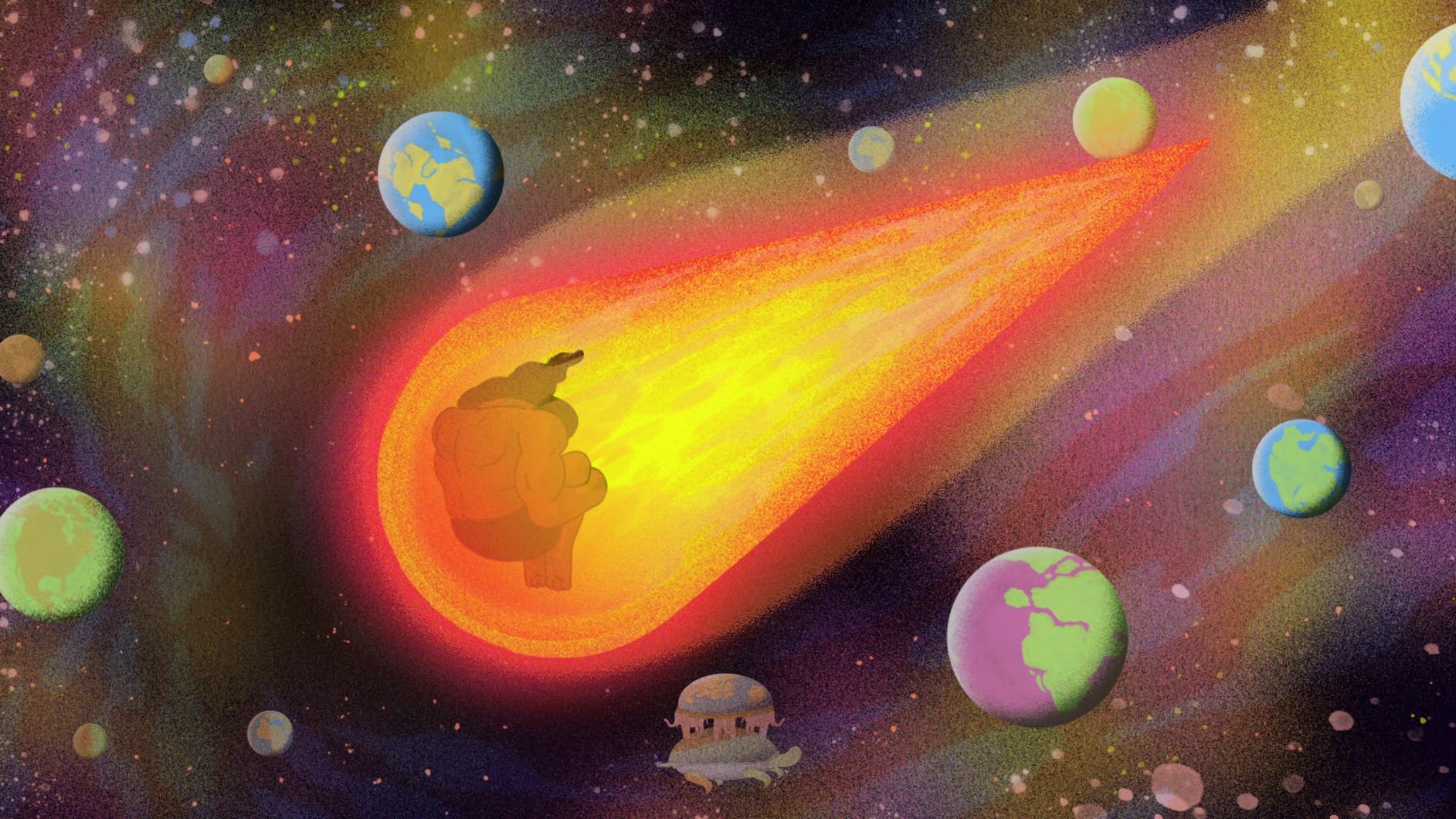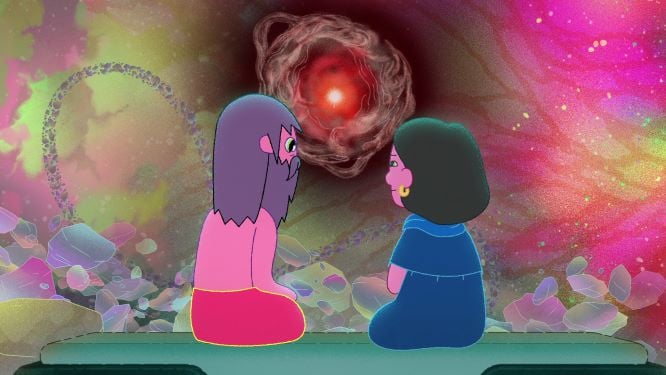Beyond ‘Black Mirror’: Why TV Shows About the Simulation Are Thriving During the Pandemic
Netflix may have made Black Mirror the epitome of simulation-related TV shows, but newer series are following the popular series’ lead in a strong way. New shows like The Midnight Gospel, an animated show on Netflix, are making waves — even with its hard themes like death and addiction — as people all over the world deal with simulation-like events.
‘Black Mirror’ spun off a series of TV shows about ‘simulation’ — all the more relevant amid a global pandemic

A critic from The New York Times pointed out an ongoing theme in up and coming television: the simulation. The concept that our reality — or perhaps our afterlife — is simulated, or created by some kind of code like in The Matrix is particularly present in media today. The publication points to shows like Hulu’s Devs and Amazon Prime’s Upload as examples. It’s especially notable during the ongoing COVID-19 outbreak.
The joke — that existentialists and perhaps, people just paying attention often make — that our actual reality was established by a number of 1s and 0s, is gaining evidence in an ever-increasingly scary world. The Times reported:
During the pandemic, it’s less of a dark-humored nerdism and more of a redundancy. What part of our lives are not simulations now? Warned away from the material world, we work in simulated office space, drink at simulated happy hours and trick out simulated islands in Animal Crossing.
Now that so many employees are either laid off or working from home, “we’re also spending more time with that old-fashioned virtual space.”
“TV — which in turn has developed a recent obsession with stories set in simulated realities,” the newspaper continued. “These series appeal to anxieties about technology, but also to a deeper fear.”
‘Midnight Gospel’ is a new animated series featuring spiritual podcast interviews
Amid the coronavirus pandemic, The New York Times, pointed out, is making us “suddenly [think] more often about death, the ultimate transition from the physical state.” While it’s dark, many of the shows are doing the brave work — rarely seen in American culture — of showing how death is a natural and, dare we say it, beautiful part of life.
“Death, as well as the possibility of other forms of life, is at the core of these stories,” the Times continued. No TV series portrays that idea better than Netflix’s new 8-episode The Midnight Gospel.

The show comes from Pendleton Ward, known for his work on Adventure Time, featuring “interviews of authors, spiritual guides and others that the comedian Duncan Trussell conducted for his podcast, The Duncan Trussell Family Hour.“
It’s admittedly “trippy,” with a few gross-out cartoon moments, it’s telling an emotional and powerful story.
The Midnight Gospel tells the story of Clancy Trussell, a “simulation farmer,” who uses a simulator to cast himself onto different virtual planets, finding interesting people and aliens to use as guests for his “spacecast.”
The show, in its themes, and tone is similar to another Netflix show, Bojack Horseman, which deals with heavy issues like mental health and addiction. It’s also reminiscent of the Adult Swim cartoon Rick and Morty, in which the main characters jump around to different parallel universes.
From ‘Black Mirror’ to animation: life is like the simulation
However, The Midnight Gospel gets a lot deeper than that.
“Most of the dialogue is verbatim interviews, playing over phantasmagoric images that serve as music to the show’s lyrics,” the Times reported. Trussel (AKA Clancy talks to Dr. Drew in the pilot). Later:
The mortician and author Caitlin Doughty, represented as the Grim Reaper, talks about the ‘death-industrial complex’ that sold Americans on embalming. The writer Jason Louv, drawn as a ‘soul bird,’ explains concepts from Buddhism, making an extended analogy between the ‘dream of life’ and an immersive game like World of Warcraft.
Like ‘Black Mirror’, Netflix’s ‘Midnight Gospel’ played with the simulation in an interesting way
“Midnight Gospel sits with that knowledge and has weird fun with it,” the Times wrote. However, amid a COVID-19 pandemic, it’s all the more haunting.
“All these conversations are piquant right now, when every day’s news invites you to imagine your death, or your loved ones’, untimely or accelerated,” the Times. However, it’s not as dark as it sounds:
… unlike its live-action sci-fi peers, The Midnight Gospel is neither dystopian nor depressing. It’s uplifting and strangely beautiful, using its simulated universes — a “Yellow Submarine”-esque water world, a land run by teddy bears — as visual aids to detach the viewer from reality and to engage with the spiritual.
However — as a sort of warning — the end of the series — gets “cathartic” and raw.

“All this comes together in the astonishing final episode, made from recordings of Trussell and his mother, Deneen Fendig, before her death from cancer in 2013,” The Times continued. “Fendig, a psychologist, talks tenderly and lucidly about accepting her passing and tries to help her son accept it, too.”
While it may sound intense, it’s less so than dealing with that in real life — or at least, it’s presenting the event in a wildly creative way.
After all, as the Times pointed out: “All stories are simulations.”
And, like great episodes of Black Mirror and every episode of the new Netflix animated show Midnight Gospel, they will “leave you feeling more real.”


